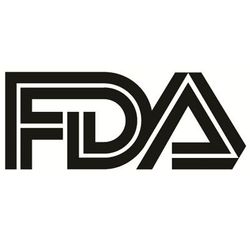
OR WAIT null SECS
April W. Armstrong, MD, MPH: Safety Profile of New Oral TYK2 Inhibitor for Psoriasis
In another segment of her interview, Armstrong explained the implications of her team’s findings for the newly-developed TYK2 inhibitor for plaque psoriasis, as well as its safety profile data.
April W. Armstrong, MD, MPH, further elaborated on the results of the phase 2b clinical trial of the tyrosine kinase 2 (TYK2) inhibitor TAK-279 for plaque psoriasis presented at the American Academy of Dermatology (AAD) conference.
Armstrong serves as professor of dermatology and associate dean of clinical research for the Keck School of Medicine at USC.
The TAK-279 drug—an oral, once-daily treatment designed for those with moderate-to-severe psoriasis—is a late-stage and highly selective, allosteric TYK2 inhibitor. This interview segment explored the implications of the trial’s findings for TAK-279, as well as the treatment’s safety profile.
“The safety profile for TAK is similar to what we saw in terms of the known safety profile for TYK2 inhibitors,” she explained. “For example, we know that deucravacitinib, which is already an approved TYK2 inhibitor, we know its safety profile quite well. So there were no new safety signals discovered.”
In the trial, Armstrong noted that they found acne or acneiform dermatitis was reported a few times but that cases were mostly mild and patients did not discontinue medication. She also noted low rates of diarrhea reported with the product, but again, cases were mild and did not lead to discontinuation.
The trial overall saw strong results for TAK-279, and the implications for the findings were explained by Armstrong.
“I think the implications for these findings are several,” Armstrong said. “Number 1 is that I think as a field, TYK2 has been identified as a molecule that's quite specific for psoriasis pathogenesis. And it is really the right pathway, if we can call it ‘right,’ or a very specific pathway that we can go after.”
Another implication is that when we're talking about inhibiting TYK2, it's all about specificity: how can we be extremely laser focused in terms of inhibiting TYK2, while not inhibiting JAK 1, JAK 2, or JAK 3,” she said. “This is important because we want to only affect, for example, the cells that are involved in psoriasis, and not affect other cells which are important, for example, for our lipid metabolism, or other parts of our immune system.”
The concept of specific targeting is something that Armstrong states is important for the development of these new psoriasis treatments. She added that she looks forward to the larger phase 3 study.
More on Armstrong’s conference presentation can be found by viewing the interview above.


